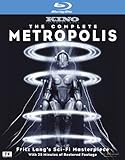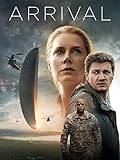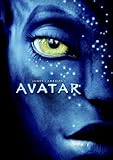Top 10 Most Scientifically Accurate Fiction Movies
Many movies are so implausible, inaccurate, or ridiculous that it can take away from the overall movie watching experience, or can make the movie seem less personal and more detached from you. However, there are some rare movies that were made to be as realistic and accurate as possible, even in totally unreal situations, with careful regards to science. In this list, we're going to be looking at some famous fiction movies that are scientifically accurate, whether due to mind blowing yet true science or due to accurate depictions or predictions of things in our everyday lives.
The infamous 1968 film "2001: A Space Odyssey", directed by Stanley Kubrick, has been praised for its accurate portrayal of spaceflight and vacuum, in a time before either of those things had really been experienced. Before even starting the film, Kubrick got technical advice from over 50 organizations to figure out what things would look like in 2001, and it definitely paid off. Many NASA engineers praised this as being "perhaps the most thoroughly and accurately researched film in screen history with respect to aerospace engineering. It accurately presents outer space as not allowing any sound, whereas almost every other space movie from that time has lots of explosions heard in space. They have a much better portrayal of weightlessness than almost any other space movie, and the approach to how space travel is engineered was highly accurate. There are some slight inaccuracies to this film, perhaps more than later items such as Interstellar and The Martian, but since 2001: A Space Odyssey was made so long ago (before the moon landing, actually), it's incredible how well they portrayed everything and to this day it remains one of the most realistic science fiction films ever.

In the making of Interstellar, the famous space movie starring Matthew McConaughey travelling through a wormhole in search of a new home for humanity, the renowned director Christopher Nolan hired theoretical physicist and Nobel prize winner Kip Thorne as a consultant to make sure everything was as accurate as possible. Pretty much all the space-related stuff and the depiction of Earth in 2067 are possible and, while there's no way to prove any of the stuff in it, theoretically true. The way that time slows down so insanely while near the black hole that 23 years pass in just a few minutes, is actually true. The way the wormhole was depicted was also accurate. According to Kip Thorne, neither wormholes nor black holes are ever depicted in a movie the way that they would actually appear. It's no surprise that Interstellar's depiction of Gargantua, the wormhole in the film, was lauded as the most accurate portrayal of a black hole ever.

Gattaca, the 1997 science fiction film featuring Ethan Hawke, and all about genetics and space travel, is a very scientifically accurate movie. So scientifically accurate, in fact, that NASA themselves picked it as the most scientifically plausible sci-fi movie of all time, which has to tell you something about it. One of the interesting things about this film is how you can basically design your baby's genetics, you're able to give them genes for higher immunities to diseases, whatever hair color you wish, etc. While this seems like a very far-fetched idea, Gattaca may become a reality sooner than we think. Since 1978, the first "test-tube babies" were created, a procedure where sperm and eggs are combined in a lab to create embryos that are then implanted into a woman's womb, so we're already not super far off. Other things such as PGD, where you can figure out what possible genetic informalities your kid might have, have also come into action. Many experts agree that it's highly possible that the world of Gattaca could be real in just a few years, and it's also quite possible that the science in it is almost exactly what it'll be in the future as well.
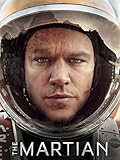
Yet another space movie on here is Ridley Scott's "The Martian". Just like the book, which was scientifically accurate due to an author (Andy Weir) who is not only a programmer and a software engineer but a hobbyist of orbital mechanics, relativistic physics, and all sorts of other cool stuff, the movie adaption of the Martian is very accurate. It revolves around Matt Damon having to survive on Mars after his crew evacuated the planet during a terrible storm, leaving him behind because they thought he was dead. He has to survive all sorts of obstacles using his brain, and surprisingly, his solutions to them are all pretty possible and scientifically correct, though sometimes embellished a bit. Even the insane twist where the crew was able to use the Earth's gravity to spin them around the planet and send them back to Mars was possible, and the rescuing of Matt Damon's character, while depending heavily on luck, had science behind it. A few hiccups in terms of its science, but overall the Martian is an extremely accurate movie.

The famous Steven Spielberg movie starring Tom Cruise makes it onto the list because of how many inventions in that movie that seemed futuristic at the time became real and are now pretty common. Driverless cars seemed at the time pretty crazy, but they came much faster than 2054, when the film takes place. There are many driverless cars right now. Facial and optical recognition, which seemed totally new at the time, are a reality now, as well as personalized ads. Even things like voice controlled homes, though uncommon, exist. By 2054, it's quite possible that the world that Minority Report predicted will become a reality, or perhaps even sooner than then!

It wasn't a very popular or praised film, but the 2009 movie about an astronaut on a 3-year mining mission at the moon, where he mines some valuable kind of material called Helium-3, (because in his Earth, that material gives 70% of the Earth's energy) is pretty accurate, as its lunar mining and the harvesting of helium-3, though that's something that we have not been able to do yet, is true to what scientists' theories are on the subject. In the future, it's actually quite possible that humans will need to mine Helium-3 to help give the Earth energy.

Not only is this 2013 movie starring Joaquin Phoenix very good, (it was even nominated for best picture) some of the interesting concepts that fuel this romantic sci-fi movie are very likely to exist in the near future. In the movie, Phoenix is a lonely and depressed man who buys an artificial intelligence virtual assistant which was designed to involve, eventually falling in love with the AI, which he calls "Samantha". This seems kind of ridiculous to imagine, but the moment humans succeed in creating artificial intelligence, they'll almost certainly add the virtual assistant thing, and many of the other high-tech things in the movie either actually already exist, or will exist soon.

What might shock you (it certainly shocked me), about this list is that Finding Nemo makes its way on here. Usually, Disney animated films are not accurate in any way. However, if you disregard the talking seagulls and fish thing, it's very true to real life. The people making the movie hired Marine Biologists to design the sea flora, swimming mechanics, and even the social behaviors of the fish in the film, and lots of the minor details about the fish in the movie are true, such as the fact that clownfish do live in sea anemones. Surprisingly, clownfish like Nemo and other tropical fish actually do occasionally end up in Sydney Harbor during the summertime after they are carried away by the East Australian Current.
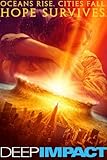
Deep Impact will seem like a pretty generic and perhaps even sloppy disaster movie after watching it, but surprisingly, some of the stuff in it is actually very plausible. According to many critics who looked into the science of the movie more after watching it for the first time, the location and everything to do with the asteroid's impact in the film is pretty solid stuff. Even the famous and renowned planetary scientist and astrophysicist, Neil deGrasse Tyson says that the science in it is good, and that the scenes using grappling hooks in space are what it would look like if there were to be a landing on an asteroid in real life.


One movie known for striving to be scientifically accurate is Contact, a film about interpreting a message from an alien race and humanity's reaction to it. In most movies revolving around highly scientific concepts such as outer space or communication, there are many complex aspects that average moviegoers don't care about. As a result, filmmakers tend to overlook details and prioritize entertainment over accuracy. However, Contact did not compromise on accuracy, incorporating extensive dialogue that may have seemed unnecessary or incomprehensible to most viewers but made perfect sense to astronomers. The movie also included seemingly nonsensical phrases like "pi times hydrogen," which are scientifically plausible.



This movie is about a volcano that is on the verge of exploding. Despite Hollywood's usual wild exaggeration in disaster movies, this one gave a reasonably accurate portrayal of how bad a situation like this is.
